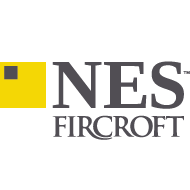How To Answer The Toughest And Most Asked Interview Questions
13 Oct, 20215:03Interviews are often split into two sections, role-based competency questions and then more ...

Interviews are often split into two sections, role-based competency questions and then more general questions used to gain a sense of your personality and your career so far. Whilst it’s impossible to predict what questions an interviewer may ask, it’s very likely you’ll be asked one (or all!) of these general interview questions at some point in your career.
Even though candidates come across these questions more frequently, they are regarded as the toughest to answer because they play a vital role in whether your application is successful or not and generally don’t rely on your demonstrable job experience.
So, if you’re getting ready for an interview, here’s how to answer the toughest and most asked interview questions to ensure you make a good impression.
Tell me about yourself
This is a very common interview question that will generally be asked at the start of an interview. Because of this, it’s crucial to be concise when answering it – you don’t want to dominate the interview with tales of your personal life. You should be demonstrating how good you’d be at the role in question. Think about your answer as a synopsis of your life and career.
The perfect answer to this question should be like an elevator pitch - short and sweet. Keep to the point and if possible, only include facts about yourself that are relevant to the role in question.
For example, if you’re interviewing for a Renewable Energy company, the interviewer might be looking to see that you have an interest in sustainability. Do you volunteer your time to clean beaches? Let them know!
If at any point the interviewer wants to hear more about a specific part of your career or personal life, they will ask further questions, giving you the green light to expand.
Why is there an employment gap on your CV?
Explaining a gap on your CV is always tricky. Regardless of the reason, it’s important to be as transparent as possible and to frame it in a positive light. A setback does not have to define you.
When answering this question, be honest and focus on what you’ve learned or managed to achieve during this gap.For example, if you were made redundant but then spent this gap taking a course or volunteering, the interviewer will likely be impressed by your resilience - which is a key quality necessary in many jobs.

What are your weaknesses?
Introspection and reflection are key parts of the interview preparation process. Whilst it’s important to think back on all the positives in your career and your strengths, it’s just as important to be self-aware and understand where you can improve going forward.
That being said, be careful not to set yourself up for failure either. This question is a bit of a balancing act. Whilst you should demonstrate your self-awareness, make sure to emphasise what you’re doing to improve or counterbalance these weaknesses to progress in your job and career.
Describe yourself in three words
It’s very hard to boil oneself down to just three words. To answer this question effectively, think about your strengths, whether that be when it comes to your character or your skills, and the words which capture them.
This question is vital for the interviewer to understand how you see yourself, who you are as a person, and what qualities you hold and value the most.
Top tip: If you’re struggling to decide, ask your friends and family what words they would use to describe you.
Tell me about a time you failed
This question is an interesting one for the interviewer to understand how you respond to failure. The most important factor in your answer will not be about the failure itself as much as how you reacted to it.
Everyone will have failed at something at some point in their life and most often, our most valuable life lessons come from these failures. This question is an opportunity to demonstrate humility, resourcefulness, and drive.
So, when answering this question, emphasise how you dealt with the mistake, what you’ve learnt from it, and what you did (or what you would do) to avoid making the same mistake again.

Why should we give you the job?
When asking this question, the interviewer wants to make sure that you understand the company, the job, and that you’re a good team fit.
To ensure you answer this question well, do your research before coming into the interview. This includes understanding the job description fully, researching the company, its social media channels, and any company news. Reflect on your own experiences and qualities and how these fit the job and company culture.
What will you bring to the company?
This is an opportunity to impress your interviewer and distinguish yourself from the other interviewees. This question enables you to demonstrate your unique skills and experience and how these will benefit the company.
Think back on what skills you’ve gained throughout your life, whether that be through work or in your personal life. Don’t forget to cross-reference this with the job description so you don’t give any answers that might seem irrelevant to the interviewer. Consider how your experience and skills can be applied in the position you’re interviewing for and what impact that will have on the team and company you would be joining.
Another thing to consider are qualities you hold such as being a good team player, being well organised or enterprising. Think of concrete examples of when these qualities have been useful in the past. For example, you might have finished a project ahead of schedule or below budget.
Rather than just say that you’ve got certain qualities or skills, demonstrate that you do through your own real-life experiences. This makes it easier for your interviewer to envisage how you would fit into the company and what you can bring to the table.

Why do you want to leave your current position?
When answering this question, you mustn’t speak negatively about your current job or company, as this could set off red flags for the interviewer. This question will allow them to understand how dependable you are, what might cause you to leave a job, as well as whether they can offer you what your current position isn’t providing.
Most interviewers understand that you wouldn’t be looking for another job if you were completely happy in your current position – but it’s vitally important to be professional and respectful about your current employer. Be honest and try to keep things positive by focussing on what you want to gain by leaving your current position rather than what you dislike about your current job.
Tell me about a time you found a solution to a challenge
This question is a great opportunity to demonstrate resourcefulness and ingenuity. Regardless of whether you’re working within Oil and Gas, Renewable Energy, or Life Science, you’ll most likely encounter challenges as part of your job.
How you handle these challenges will be vital to how you perform in your role. The interviewer will want to know that you can manage challenges and take them on, rather than crumble under the pressure, as well as how you solve problems.
This question revolves around your attitude towards challenges. Whilst you can give an example of a problem you resolved at work, you could also think about any events outside of work or in your personal life where you managed an issue.
One good way to structure such an answer is through the STAR format. STAR stands for
Situation: set the scene
Task: explain what your role was
Action: describe the specific actions you took to resolve the task
Result: detail the outcome of your actions
By sticking to these four steps, you can answer this tough question concisely and effectively.
Career support from NES Fircroft
NES Fircroft has been supporting engineers, candidates, and technical clients across many different industries throughout the past 50 years. If you’re looking for your next role, check out all our latest opportunities.
If you’re looking for more career tips and advice, check out our blog or sign up to our EngineeringPro newsletter, to receive the latest career advice, industry news, job opportunities and more, directly to your inbox.










